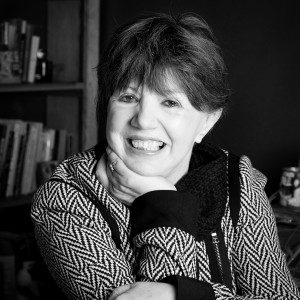Joan Hoey, author of Purposeful Destiny, presented about overcoming obstacles at the University of New Haven, Wednesday, March 11 as a part of Wellness Week.

Hoey explained that in order to overcome obstacles we face, “getting out of the 24-7 tape” is necessary. To further explain this, Hoey described the scenario most go through in the morning during their breakfast when one tends to rehash yesterday’s obstacles and, in doing so, you “invite them to breakfast with you.”
Hoey earned a master’s in social work from Adelphi University and has more than 20 years of clinical experience as a private practitioner, trainer and human service consultant. She also has a master’s in speech communication from State University of New York at Buffalo.
Purposeful Destiny urges readers to reach beyond their own limitations to find their own higher power through the inspiration of eight true stories of growth, faith and fulfillment.
So, in order to get out of the 24-7 tape, one must allow themselves to go down the future line.
“Don’t let anyone ever freeze an evaluation of who you are. You decide,” said Hoey, who suggested that everyone make a list of 100 things they like to do, not occupation oriented in order to break the frozen evaluation and travel down one’s own personal future line.
Next, Hoey explained an acronym she uses to overcome a frozen evaluation: FEAR, which stands for false expectations appearing real. To give an example of this, she described a situation where a friend of hers was “stuck” at a McDonalds job, and is now a lawyer.
“You want to remember to stay in the present,” said Hoey, who suggested people remember this when meeting a new person and wondering if they will like you or not. “You haven’t met that person yet,” so you can’t worry about them yet.
Boredom is another factor that keeps many from their destiny. “Boredom is being successful at things you are not interested in,” said Hoey. “When you think about your destiny, make sure it is something you are in fact passionate about.”
To overcome this obstacle it is important to get clarity through the process of visualization, similar to painting with numbers. “It is very important for you to believe what you are visualizing and create a scene,” said Hoey.
Hoey then explained three ego states, or a cluster of feelings, that everyone possesses. P, A and C are the three ego states, which stand for parental, adult, and child. The parental ego state encourages us, gives us advice, or otherwise acts as our supervisor, which many people look outwards for this instead. The adult ego state allows us to see things more clearly, while the child ego state allows impulse and spontaneity. However, any fear encountered as a child will be carried with one throughout their life because of their lack of forethought in the child ego state.
However, “obstacles can be a blessing,” said Hoey. “Lots of time we need to be slammed into the same obstacle before we make a turn. New ideas are painful. It takes bravery and courage to change and go down a different road.”
So, as a result, Hoey explained that if you are having a reoccurring obstacle, maybe a higher power is telling you to move in a new direction. When obstacles keep appearing or unusual circumstances occur, Hoey identifies it as guidance.
“Laughter is to the soul what soap is to the body,” said Hoey, and recreation, broken apart into re-creation can reduce stress. To do this, Hoey explained another tool: I/E, which stands for intelligence over emotion. So, Hoey suggested that one write out their emotions to get them out and to know what they are so you can get clarity and “go to the balcony to get a clear view.”
“You are the director of your own movie,” Hoey concluded with. This means that we don’t have to live in a perfect storm all the time. With this, Hoey taught the audience the Indonesian word “Belum,” which means not just yet.
Purposeful Destiny can be purchased from Amazon.com, Balboapress.com and Barnesandnobel.com.










